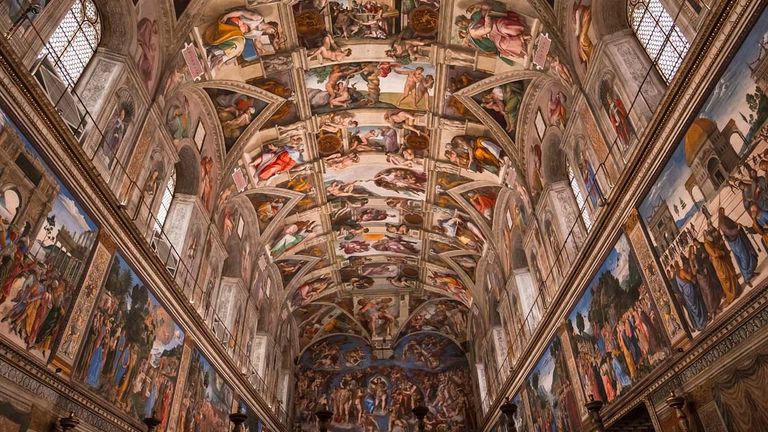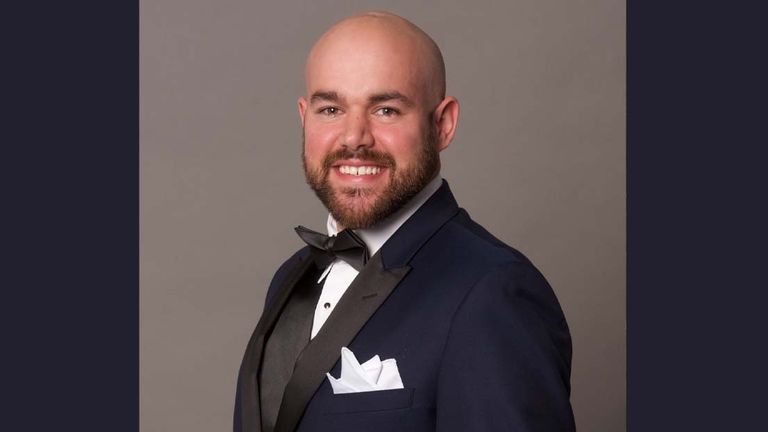The Vatican announced that Pope Francis passed away on April 21 at the age of 88 — in the middle of the Catholic Church’s busy 2025 Jubilee Year.
Visits to Vatican City and Rome will likely be impacted by closures, crowds and increased security, so clients with trips set for the coming weeks will need to consider if this is still the right time for their visit. Travel advisors can show clients their value by providing calm, clear advice and ensuring that clients make the most of a historic experience.
Following the news of the pope’s passing, Steven Gould, chief innovation officer of Travel Advisor Resource Center (TARC) and president and CEO of Goulds Travel, was quick to help coach advisors in his “Travel Agents Selling Europe” Facebook group. Here, he elaborates on how to handle client communication and trip planning right now.
What advice are you giving to travel advisors who have clients scheduled to visit Rome in the next seven to 10 days when crowds may be at their peak?
Advisors should focus on being a calm, informed resource for clients traveling to Rome in the coming days. It’s important to communicate that you’re actively monitoring closures, crowd control and security protocols, and working with partners to find the best alternatives if needed.
It’s important to communicate that you’re actively monitoring closures, crowd control and security protocols, and working with partners to find the best alternatives if needed.
Even without all the answers, showing clients you’re engaged and advocating on their behalf builds trust. Transparency, steady communication and reassurance go a long way right now.
What changes to Vatican access should travelers expect during the nine-day mourning period and the subsequent papal conclave?
During the mourning period, the Vatican Museums close, as well as the Sistine Chapel. The Sistine Chapel will also be closed during the papal conclave, but St. Peter’s Basilica and the Vatican Museums should be open at that time.
 The Sistine Chapel will be closed during the nine-day mourning period and the papal conclave.
The Sistine Chapel will be closed during the nine-day mourning period and the papal conclave.
Credit: 2025 photogolfer/stock.adobe.com
If clients are specifically looking to experience the stairway between the Sistine Chapel and St. Peter’s Square (Scala Regia), this would not be possible during this time because they’ll be routed through an alternative exit.
How might transportation, accommodations and restaurant reservations be affected throughout Rome, not just near Vatican City?
Being that there are more than 1 billion Catholics around the world, I would expect that an influx of travelers will be coming into the city, so make reservations where you can, plan ahead and be sure to tell clients to pack their patience. They may need to be a bit more flexible than normal.
What resources should advisors be monitoring for real-time updates on the situation?
I always recommend going straight to the source, so that would be watching the information provided by the Vatican News.
 Travel advisor and TARC founder Steven Gould says travel advisors should keep clients calm by focusing on the facts and by closely following Vatican News.
Travel advisor and TARC founder Steven Gould says travel advisors should keep clients calm by focusing on the facts and by closely following Vatican News.
Credit: 2025 Steven GouldWhat communication strategies would you recommend for advisors when discussing these developments with clients?
Always approach everything with the facts, but take into account that sensitivities may also be heightened — regardless of religious beliefs. There are some clients who may not appreciate the influx of tourists and there are others who are currently mourning. Regardless of where your client may be, it is the advisor’s responsibility to ensure they have the best trip possible.
Regardless of where your client may be, it is the advisor’s responsibility to ensure they have the best trip possible.
How might the timing of selecting a new pope affect Jubilee celebrations and events already scheduled?
According to Reuters, the Vatican spokesperson, Matteo Bruni, mentioned that “the ongoing Jubilee, or Catholic Holy Year, will continue as planned.”
For clients who view this as a historic opportunity rather than an inconvenience, what guidance would you offer to help them have a meaningful experience?
Be present. When traveling during these times or when attending public events, try to be in the moment and remember that these are once-in-a-lifetime experiences that offer strong spiritual and cultural significance.
Clients will have the opportunity to meet people from all over the world, share stories, ask questions and embrace the sense of a global community. These encounters can also add greater depth to one of the most moving experiences of their life, but flexibility is key.
Just like visiting any religious site, it is important to be respectful. Keep in mind that both Rome and Vatican City will likely be extremely crowded with pilgrims, clergy and world leaders flying in. Clients will have the opportunity to meet people from all over the world, share stories, ask questions and embrace the sense of a global community.
These encounters can also add greater depth to one of the most moving experiences of their life, but flexibility is key. Planning ahead may not be possible in many cases, but packing patience will help, especially during the next 30-60 days.
Are there alternative itineraries or side trips you recommend for travelers who want to avoid the largest crowds while still experiencing Italy?
For travelers hoping to avoid peak crowds while still enjoying Italy, my recommendation would be to consider private or small-group tours that offer a more intimate experience, even in popular cities. Destination dupes are also becoming such a hot topic lately, so think beyond well-known areas such as Tuscany and opt for destinations like Umbria or Puglia, which offer similar charm with fewer tourists.
For those traveling soon, it’s about helping them navigate their options with minimal disruption to already established itineraries, while later travelers can work with their advisor to tailor an itinerary that truly reflects their values and interests.
What else is TARC suggesting advisors do to prepare clients and demonstrate their value?
It starts with three simple principles: Be proactive, be informed and be present. This is a powerful moment in history, and for many travelers, it may be their first time navigating an event of this magnitude — whether their reasons for traveling are spiritual, cultural or simply rooted in curiosity.
That’s why the role of a travel advisor has never been more important. Step up as their advocate. Anticipate their needs before they ask. Keep them updated with real-time developments, insider knowledge and practical tips to help them feel both prepared and supported.